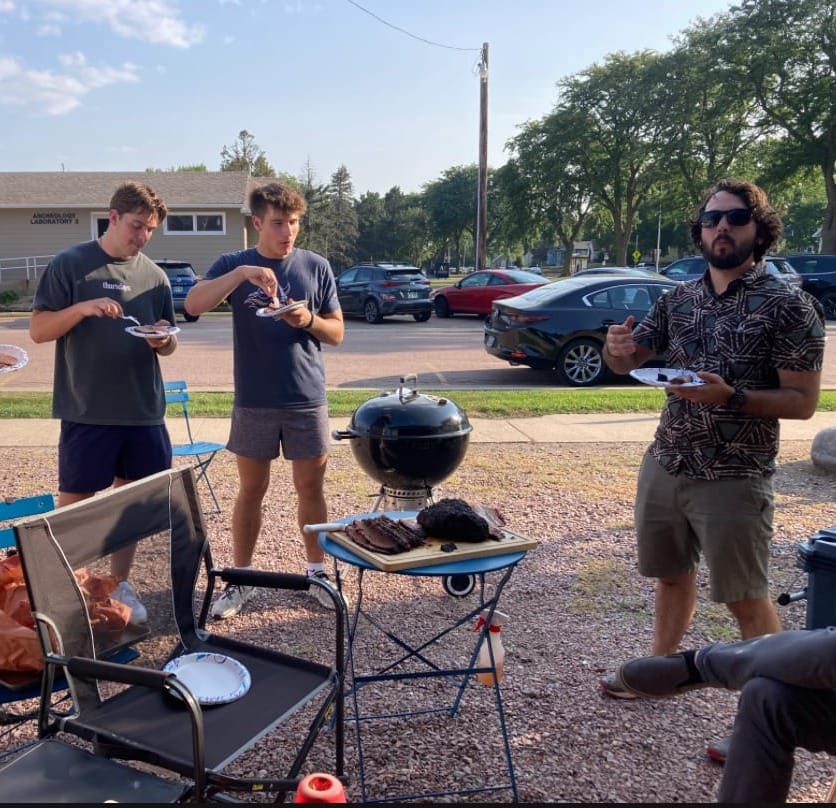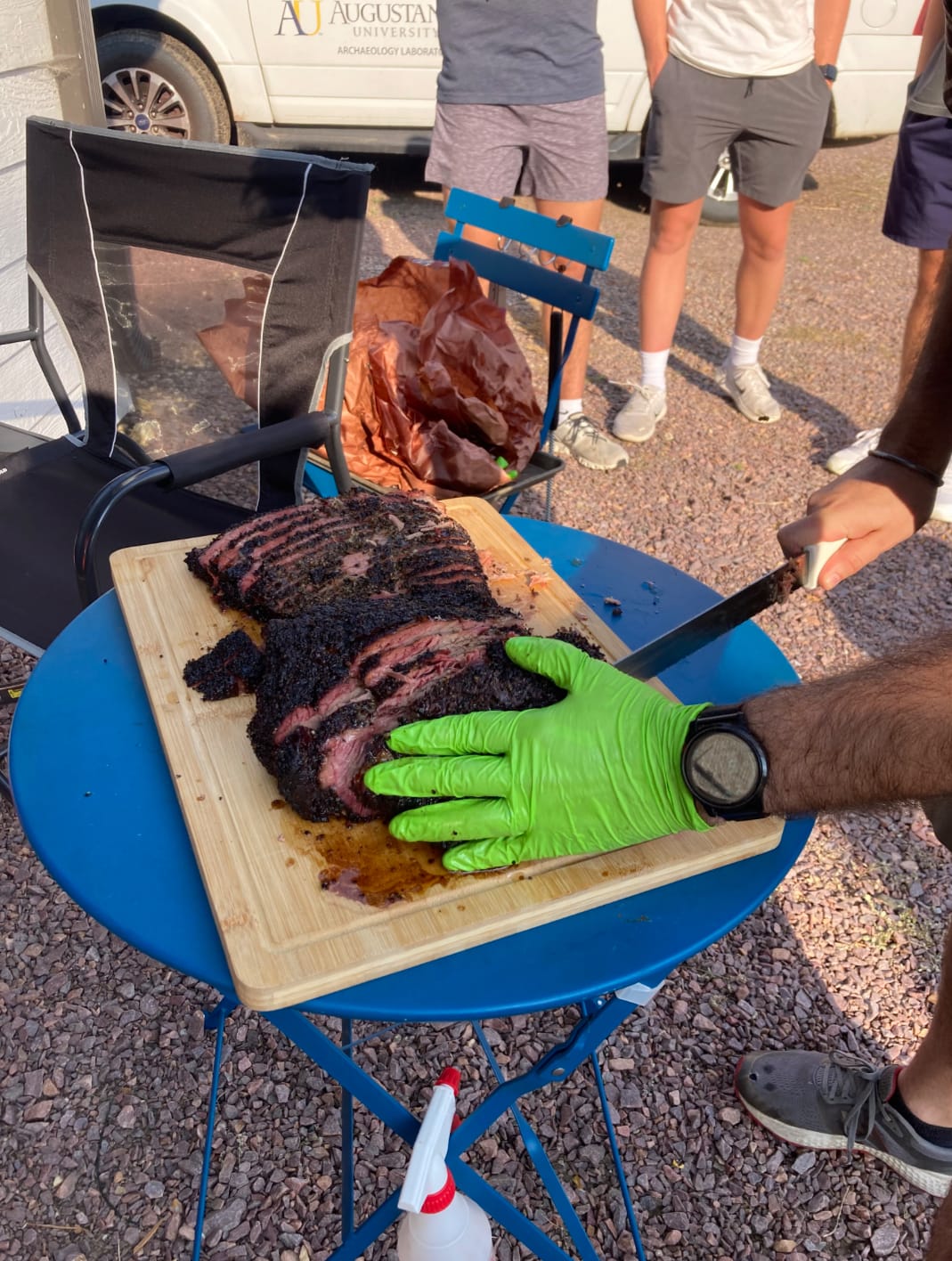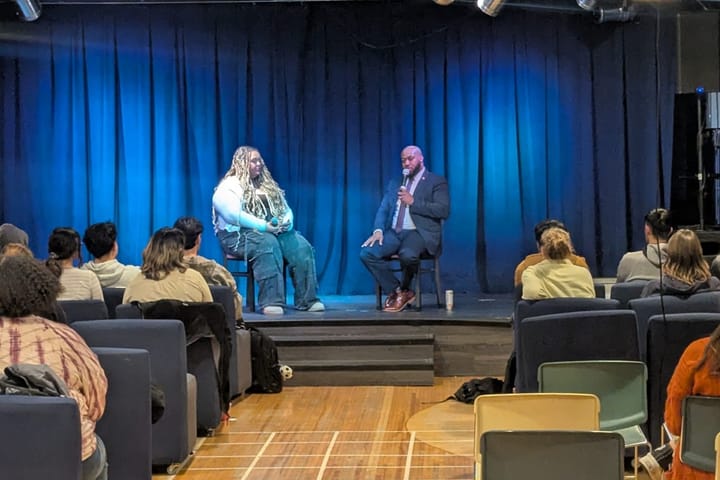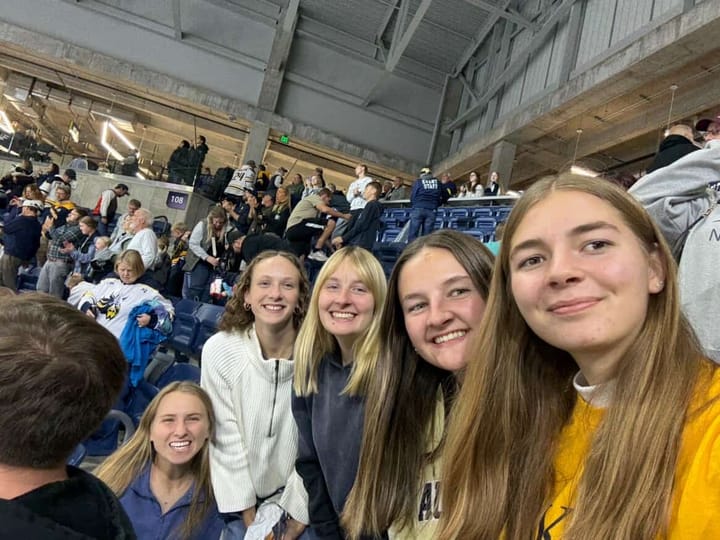Married professors teach FYS courses

Marriage and anthropology go hand-in-hand for Gina Palefsky, assistant director of research for the archaeology lab, and Trent Trombley, assistant professor of anthropology.
The couple teaches 12% of the university’s First-Year Seminar (FYS) classes, both with two sections each. Palefsky teaches Food and Culture, and Trombley teaches The Anthropology of Barbecue.
While they don’t teach side by side, their shared curiosity and constant exchange of ideas often bring their classrooms closer together.
Both professors approach their classes with a similar goal: helping first-year students explore the relationship between food and culture.
Palefsky’s class asks students to consider how something as simple as a meal can bring people together.
Trombley’s takes a similar approach, exploring how cooking and gathering can shape community.
“I was not expecting to be put in this class, but it has become one of my favorites,” freshman Rosalynn Focken said, who is in one of Trombley’s sections. “I love the deep discussions we have surrounding diversity and how barbecue has influenced our lives and traditions.”
The professors’ shared passion for anthropology began before their time at Augustana.
As Trombley recalled, they both attended a skeletal biology class at the University of California, Berkeley, where Palefsky started as a freshman. When Trombley transferred from a community college and started as a junior, the two ended up meeting.
Later, they found themselves finishing their doctorates at the same time and facing what Trombley described as the “two-body problem,” where academic couples compete for positions at the same institutions. The pair applied for the same job at Augustana.
“We were both looking for jobs, and then I ended up getting this position through the interview process,” Trombley said in a conversation with his wife.
“You were very supportive of the job and us moving out here. Within a couple weeks, the lab desperately needed a high-ranking archaeologist researcher, and they asked, ‘Do you know anyone?’”
That someone, of course, was Palefsky, who joined Augustana soon after. Both started working on campus in 2023.
“They said that you’d actually end up being the best candidate for that,” Trombley continued. “And so we started working here, and that went on until we both started teaching FYS last year in the spring.”
Now, they’re using their shared background and interests to make anthropology available to freshman students. Palefsky’s focus on food comes directly from her research.
“My Ph.D. and the kind of pathway that I followed through undergrad had a lot of focus on the anthropology of food,” she said. “I looked at it from very different perspectives. For my dissertation, I looked at it from an archaeological perspective, looking at diet through bone chemistry, but with that comes a lot of interesting reading about food and just how fundamental it is in our everyday lives.”
In Food and Culture, students explore how meals reflect identity, community and culture from dinners to celebrations. Palefsky encourages students to write about memorable meals and what they reveal about human connection.
“It’s just really special to be able to read students’ journals and their writing,” she said. “I feel very privileged to have that window into their lives and their thoughts.”
Trombley’s FYS course, in which students study the cultural meanings behind barbecue, came out of a personal hobby: a passion for cooking and baking.
He even brings his smoker to campus for informal office hours, creating a space where students and faculty can relax, talk and share food.

Focken said she appreciates how community-focused his class feels.
“My most memorable moment was our first cookout,” Focken said. “It was really fun, and I got to meet new people as well.”
“It’s a good way for people to come and pause,” Trombley said. “I try to feed the freshmen as well as any other faculty or staff who come by.”
Whether it’s through cooking or class discussions, both professors show students how anthropology is important in everyday life.
While their course themes differ, their teaching philosophies often overlap.
“We’re constantly sharing with each other things that worked or didn’t,” Trombley said. “Every day, one of us in the house is teaching or grading or prepping during the weekend, so it’s pretty much seven days a week for 16 weeks. This whole semester is on our minds.”
That collaboration, both personal and professional, is what makes their classes so unique.
Through cultural foods, Palefsky and Trombley show their students that anthropology isn’t just something in a textbook.
It’s lived, shared and served.



